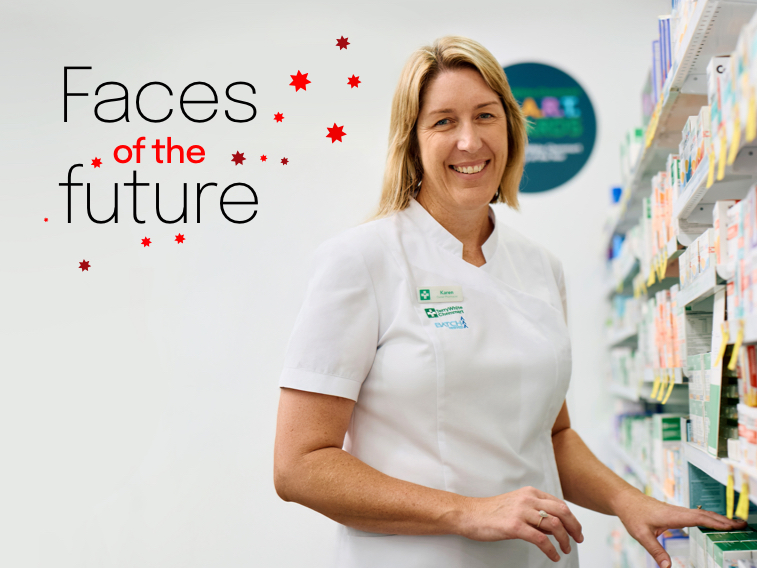Former professional netballer Karen Brown’s passion for scoring healthcare innovation goals has seen her continually break new ground.


Article
Continued growth in the ageing population is expected to generate business for healthcare providers. Strategic Professor Susan Gordon, South Australian Chair of Restorative Care at Flinders University, explains the benefits of differentiating your services to meet older people’s evolving needs.
Today’s over-50s have very different healthcare expectations from previous generations. Professor Susan Gordon explains how providers can benefit by listening to their needs.
Health and ageing are employment growth areas – increasing life expectancy means that by 2050, a quarter of the Australian population will be over 65. Strategic Professor Susan Gordon, South Australian Chair of Restorative Care at Flinders University, believes that the key to success for healthcare providers will be listening carefully to older people and taking steps to meet their needs.
“Today’s over-50s are better-informed and many are more affluent than previous generations with different expectations,” she says. “For a long time we’ve had a system where the tail wagged the dog – funding models have dictated the health services older people receive as well as when and how they receive them. Now, superannuation is giving many consumers a freedom of choice previous generations could only dream of. The National Disability Insurance Scheme (NDIS) is also allowing people with a disability to determine and select the services and care they require. The term ‘patient-centred care’ has been around for some time but now it really is at the centre of what we do.”
This new environment also provides emerging business opportunities for health organisations.
“Healthcare providers should be thinking about how they can differentiate their services to meet the needs of healthy, ageing people who want to keep working, participate in society and maintain their lifestyle,” Professor Gordon continues. “For example, most people wish to stay in their homes rather than move into residential care so, from a business perspective, how can that be supported to facilitate at-home care?”
A more proactive system
Professor Gordon is concerned that we’re missing opportunities to reduce the functional decline that occurs with normal ageing.
“For example, in Australia we have a 75-plus health assessment which hasn’t been reviewed for 15 years,” she says. “The doctors and nurses who do the assessments are working with outdated tools so the whole process has become something of a box-ticking exercise. We need to evaluate whether this assessment is contributing to effective change – or, better still, follow the lead of countries such as Singapore and India where a similar assessment occurs at 60 or 65. At this age, you can pick up deficits early enough to do something about them. By 75, the horse may have pretty much bolted.”
She would also like to see more funding for allied healthcare.
“Being able to access health professionals like a podiatrist or a physiotherapist promptly can make a big difference to how well people function, their independence and their ability to participate but, at the moment, these kinds of health services aren’t readily available to everyone,” she says. “Funding allied healthcare also makes sound economic sense because it can help to reduce expensive hospital admissions.”
A new approach to education
Keeping pace with change is a serious challenge throughout the health sector.
“I’m very aware that the students who are starting their studies this year won’t join the workforce until at least 2020,” says Professor Gordon. “Progress is incredibly rapid in this technological age, so we must ensure we’re providing them with relevant and contemporary education which encompasses innovations in digital health and interprofessional models of care.”
Continuing professional development for health professionals who are already in the workforce is also increasingly important. “The challenge is to ensure that professional development allows the current workforce to optimise healthcare and that there is shared understanding and knowledge between new graduates and people who have been working for some time.”
Bringing things together
Professor Gordon started her career as a physiotherapist at the Royal Adelaide Hospital. She then worked in regional communities in both public and private settings before being appointed Deputy Dean of the College of Healthcare Sciences at James Cook University in 2013. Her current position, the first of its kind in Australia, is funded jointly by the ACH Group, an aged care service provider, and Flinders University, with the aim of bringing together the aged care sector, the teaching of the future health workforce and health research.
“The outcomes of research are most effectively translated when the research is co-designed and based on the end-users’ needs,” she says. “Creating my position is an important step forward because it acknowledges that to be effective we must all work together.”
More from NAB:
© National Australia Bank Limited. ABN 12 004 044 937 AFSL and Australian Credit Licence 230686.